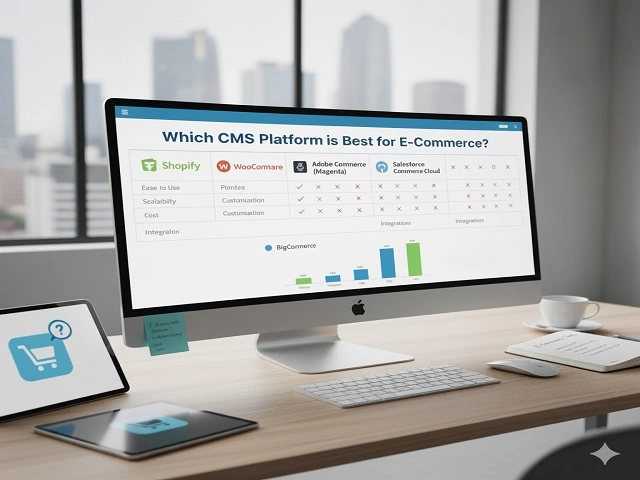For individuals seeking to increase their website’s visibility, keyword research remains constant starting point in SEO. This is especially true in the inbound world of digital marketing, where Google’s frequent algorithm changes keep us on our toes.
Ever wonder why some websites consistently rank at the top of Google search results while yours seems to get little traffic, even though it’s indexed? It can be frustrating to spend time and money on your site only to see minimal returns.
What you are missing is the know-how about what your potential customers are searching for and so that you can modify your content to suit their needs, rather than focusing solely on word choice. You may increase your website’s traffic, improve its search engine rankings, and eventually improve your company’s online presence by conducting keyword research.
To get such a crucial part of SEO Services right, read this blog for practical tips and strategies that can help you achieve higher website rankings.
Understanding Keyword Research
Researching keywords includes identifying and examining the words and phrases that users enter search engines. Given that it assists with determining the terms that will draw the appropriate audience to your website, this process is essential to SEO and digital marketing.
Through keyword research greatly enhances your website’s visibility and organic traffic, and it is crucial for shaping your content strategy and search engine rankings. Using the right keywords is essential for attracting visitors and increasing traffic, as 93% of online experiences start with a search engine.
The Role of Keyword Research within a SEO Strategy
Keyword research helps you grasp the language your target audience uses, which in turn helps you craft content that meets their needs and expectations. By optimizing your site with relevant keywords, you enhance your visibility on search engines, making it easier for potential customers to find you. Effective keyword optimization improves your site’s relevance, enhances user experience, and can lead to higher rankings and more conversions.
Let’s move forward to the set of insights that will help you execute keyword search in a precise manner.
Setting the Foundation: Know Your Audience
- Identifying Your Target Audience
You must precisely define your target audience before you can begin your keyword research. Who do they represent? What are their needs, interests, and areas of discomfort? Create thorough customer personas that contain goals, motivations, behavioral patterns, and demographic data. Knowing these components will assist you in choosing keywords that will appeal to and match the search habits of your target audience.
- Understanding Search Intent
The fundamental purpose of a user’s search query is known as search intent. It falls into various categories:
- Informational: The user seeks to learn something (e.g., “how to start a blog”).
- Navigational: The user is looking for a specific website (e.g., “Facebook login”).
- Transactional: The user intends to make a purchase or complete a transaction (e.g., “buy running shoes”).
- Commercial: The user is researching options before making a purchase decision (e.g., “best smartphones 2024”).
Practical Tips for Effective Keyword Research
- Brainstorming Keywords
To begin, hold brainstorming sessions to compile a long list of possible keywords. Look through industry forums, FAQs, and customer reviews to find words and phrases that are appropriate for your niche.
Utilize efficient tools for keyword research to limit the number of keywords in your list. When choosing your targeted keywords, you need to be prepared with the following set of useful information:
- Search Volume: Indicates how often a keyword is searched.
- Keyword Difficulty: Measures how challenging it is to rank a keyword.
- Related Keywords: Suggests other relevant terms you might consider.
- Analyzing Competitors
Analyzing competitors can yield a substantial amount of insightful information. Determine who your main rivals are, then look at the content and keywords that they rank for. You can find opportunities and weaknesses in your own approach by using tools like Ahrefs and SEMrush, which can provide you with data on the keyword strategies of your competitors.
Even though you do possess a mountain of data, the question remains: how should you use it? You can understand what to do by reading the following section.
Evaluating Keywords: Search Volume vs. Keyword Difficulty
Search Volume
The frequency with which a term is searched on search engines is measured by search volume. Although a high search volume suggests more potential traffic, it also usually means more competition. Choosing the appropriate keywords for your strategy requires striking a balance between search volume and keyword difficulty.
Keyword Difficulty
The difficulty of ranking for a specific keyword is measured by keyword difficulty. Establishing a balance between a high volume of searches and reasonable difficulty is extremely important. You can increase traffic to your website and rank higher more quickly by concentrating on keywords that are easier to find.
Long-Tail Keywords
Longer and more focused phrases make up long-tail keywords. They tend to target users with more specialized needs, so they typically have lower search volume but higher conversion rates. For instance, the long-tail keyword “best eco-friendly yoga mats” may draw in customers who are prepared to purchase one. Since long-tail keywords generate 70% of all search traffic, you should include them in your strategy.
Strategic Keyword Selection for Your Niche
Relevance to Your Niche
Select keywords that are relevant to your target market and niche. Low engagement and high bounce rates can be caused by irrelevant keywords. Focus on terms that suit the search intent of your audience and appropriately describe the goods or services you provide.
Local SEO Keywords
Local SEO keywords are particularly important if your company caters to a local clientele. Choose location-specific keywords to draw in nearby clients. For example, “best Italian restaurant in San Francisco” or “plumbing services in Dallas” can help you attract and rank for local searches.
Content Depth
According to research, a Google first-page result typically has 1,890 words. This shows that simply adding keywords in your content alone is barely enough. To satisfy users’ expectations and add value, your content needs to be thorough, covering all relevant angles. Make sure your content addresses the topic thoroughly and provides answers to frequently asked queries about your keywords.
Conclusion
A thorough understanding of your audience, the appropriate tools, and a dedication to constant improvement are necessary elements for mastering keyword research, which is a journey that never ends.
A successful SEO involves more than just selecting high-volume keywords. It requires addressing search intent, creating valuable content, and continually optimizing your strategy. However, managing these tasks alongside your core business activities can be quite hectic and focus intensive. Savit Interactive understands these challenges and offers expert SEO services that will attract the right audience to your website.
We invite you to contact us today to explore how our digital marketing solutions can help your business reach the projected heights it deserves.



